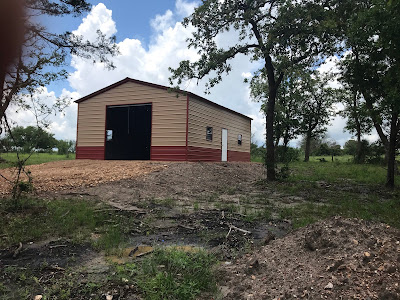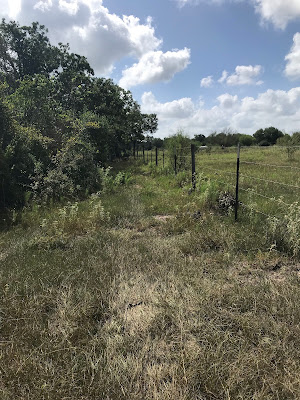I believe in science 100%. Our ability to learn, explore, hypothesize, experiment, and grow our knowledge in ways that improve our lives is a gift from the universe, the source, God. I doubt many of you who read this would never go to a doctor for a dangerous illness. I bet many of you get a flu vaccine, and you vaccinate your kids to protect them from dangerous and sometimes deadly diseases. You have electricity. You drive cars. You have an abundance of food, shelter and clothing.

It's all science. Humanity learned the facts of this planet, and humanity used those facts and findings to bring us to a place in time where I can write this blog entry at the very same time it races to a computing cloud and races to the masses on this science wonder called the internet. So yeah. We all benefit from high tech, but for years, I've been interested in naturalists and what they learned about the world around them. How simple observation of the natural world, and experimentation with what the earth provides got us to where we are today.
What Does Naturalism Have to Do with Retirement?
I'll tell you. Aging is about adaptability. Whether it's your diet, your knees, your hearing (and mine is noticeably bad these days), your vanity, your income or the weather, as we age, we have to adapt. I think about this more than I probably should, and I share my thoughts with my readers. You're not going to agree with everything I think. I admit to existential anxiety about the future, and I have decided to admit it exists.
Fact: The cost of living rises faster than the increase in wages. Return on savings is laughable. Social security will NOT cover our current lifestyle. Therefore, I give thanks for the ability to have our country place, and I give double thanks for the natural resources it hosts.
Needless to say, I love experimenting with solar energy, rainwater catchment, foraging, wildlife observation, green building, and whatever else I observe in the natural world. I'm no Emerson or Thoreau, but quiet observation is an excellent investment in my retirement.
While taking our time to enjoy and conscientiously develop our property, we're also building a future for retirement that will be sustainable both financially and environmentally. Our most recent endeavor was to finally erect a barn.
This thing is big enough to house both tractors, store whatever we have left in a storage unit we rent, and a spacious "workshop" for Tammy. It was surprisingly economical for its size. Eventually, we'll create a sitting area that allows us to watch the sunset and the wildlife comings and goings from the nearby creek. We hope the people we love to spend time with will enjoy our rugged little patio, too.
It's a Resource Balance
In the next 10 years, we hope to spend most of our days relaxing and enjoying a quiet country retreat. Part of reducing the stress of aging is thoughtfully managing our assets. Without knowing what the world will be like in our advanced years, I'm paying attention to today to be as prepared as possible for tomorrow.
COVID isn't going anywhere. Hopefully, it eventually becomes no more than a whopping cold or mild flu as we build immunity. However, as mankind ventures into parts of nature better left unexplored, we'll continue to see new diseases that threaten our existence. It's also getting hotter, so more than microscopic life will evolve. I don't plan on foraging for food as our main source of sustenance, but I am very interested in the history of human cuisine and natural science.
The above photo looks like a fence line in need of mowing, but it camouflages life sustaining food sources. Mostly for the wildlife, but a person could enjoy it, too. In fact, some of what you can't see here ends up on grocery specialty shelves as culinary treats. We plan on having some fun harvesting and creating some of those treats ourselves.
Besides being an adventure in foraging, this is a lesson in natural adaptability. The hearty plant life that flourishes here reminded me that the things that create inconveniences for modern humans, are necessary for planetary life. I'm talking about that very alarming freeze back in February. There are fruits ripening in this photo that I had no idea were simply waiting for something as necessary as a freeze to appear in abundance.
Wild Rose Hips
I hate, hate, hate the very invasive wild rose bushes that absolutely conquer pastures around us. I shred the crap out of them, but as I was trying to figure out how to beat them back after their freeze induced growth spurt, I discovered Rose Hips.
I was actually looking for more possum grapes along the fence line when I saw the fruit.
Sure enough, they have the same value as cultivated rose hips... Well, I'll be damned.

These weren't quite ripe. In fact, they were almost as hard as a nut, but I tasted them anyway, only to read that they can make your mouth itch. And as they travel your digestive tract, they make sure to make you itch on their way out of your body... There's a crude name for these little wonders. "Ass itchers." Fortunately, just tasting one with the tip of my tongue spared me the whole digestive experience. I only had a weird feeling in my mouth and slight burning in my stomach; which could have totally been psychological after I read how a raw one can affect the body. At any rate, with proper preparation, they're good for you!
Here's the big retirement takeaway. Our land is clearly fertile, and I rather enjoy gardening. I'm not all that worried about food and healthy living. I am worried about the heat, and inconsistent rain. We had a lot this year, but who knows what next year will be like. So natural fruits are worth understanding and maybe cultivating at some point.
Even wild roses.











